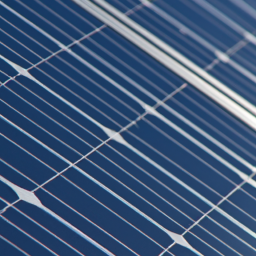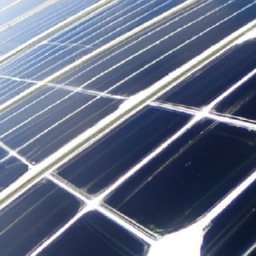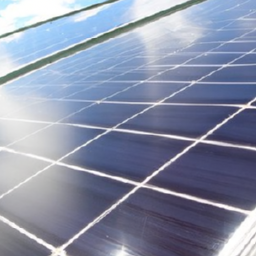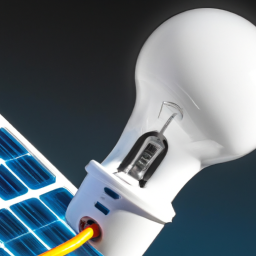In this article, we will explore the question of whether a solar generator can be used in any type of weather. We will discuss the effectiveness of solar generators in different weather conditions and examine any limitations they may have. By the end of this article, you will have a clearer understanding of whether a solar generator is a reliable power source regardless of the weather.
Solar generator: An overview
A solar generator is an environmentally friendly and cost-effective way to generate electricity. By harnessing the power of the sun, it converts sunlight into usable energy that can power various appliances and devices. Whether you are camping, experiencing a power outage, or simply looking to reduce your carbon footprint, a solar generator can be a practical solution.
How does a solar generator work?
a solar generator consists of three main components: solar panels, a battery pack, and an inverter. The solar panels, typically made of photovoltaic cells, capture sunlight and convert it into DC (direct current) electricity. This electricity is then stored in the battery pack for later use. Finally, the inverter converts the stored DC electricity into AC (alternating current) electricity, which can be used to power household appliances.
Benefits of using a solar generator
Using a solar generator has several benefits, regardless of the weather conditions. Firstly, it is a renewable and clean source of energy, reducing your reliance on fossil fuels and minimizing your carbon footprint. Secondly, it is a silent and emission-free alternative to traditional generators, making it ideal for camping or quiet environments. Additionally, solar generators are low-maintenance, with no fuel to purchase or exhaust fumes to worry about.
Factors influencing solar generator performance in different weather conditions
While solar generators can be used in various weather conditions, the performance and efficiency of the system can be influenced by several factors:
Sunlight availability
Unsurprisingly, one of the most critical factors affecting solar generator performance is the availability of sunlight. Without sufficient sunlight, the solar panels will not be able to produce the required amount of electricity. In overcast or rainy weather, the amount of sunlight reaching the panels is significantly reduced, leading to reduced power output.
Temperature variations
Extreme temperatures, whether hot or cold, can affect the efficiency of a solar generator. High temperatures can cause the system components to overheat, leading to a decrease in performance and potential damage. Cold temperatures can affect battery performance and reduce the overall system efficiency.
Humidity levels
Humidity levels can impact the performance of a solar generator, particularly when it comes to the longevity of the system. High humidity can lead to corrosion and damage to the system components over time.
Precipitation impact
Rain or snow can affect the performance of a solar generator in several ways. Firstly, rain can cause water damage if the system is not properly sealed and protected. Snow can cover the solar panels, reducing their ability to capture sunlight and generate electricity.
Using a solar generator in sunny weather
In ideal weather conditions with bright sunlight, a solar generator can operate at its optimal performance level. The solar panels will receive maximum sunlight, resulting in a higher power output. However, it is essential to take certain precautions to avoid overheating issues.
Optimal performance in bright sunlight
To maximize the performance of your solar generator on a sunny day, ensure that the panels are positioned correctly to receive direct sunlight. Place the panels in an area with minimal shading and adjust their angle to capture the most sunlight. Regularly clean the panels to remove any dirt or debris that may block the sunlight.
Avoiding overheating issues
In hot weather, the system components can become overheated, leading to a decrease in performance and potential damage. To avoid overheating, place the solar generator in a shaded area or use a cooling system, such as a fan or ventilation system, to keep the components cooled down. Regularly monitor the temperature of the system and turn it off if it becomes too hot.
Using a solar generator in cloudy weather
Cloudy weather can significantly reduce the power output of a solar generator, as the panels receive less sunlight. However, this does not mean that the system is ineffective in such conditions. Here are some considerations to keep in mind when using a solar generator in cloudy weather.
Reduced power output
During cloudy weather, the power output of a solar generator can be significantly reduced compared to sunny conditions. This means that the system may not be able to supply as much electricity as desired. It is important to manage your power consumption and prioritize essential appliances or devices during these times.
Battery storage considerations
In cloudy weather, the solar panels may not generate enough electricity to meet your immediate power needs. However, the excess electricity can still be stored in the battery pack for later use. Ensure that the battery pack is adequately charged before cloudy weather sets in, so you have a reserve of power when needed.
Using a solar generator in rainy weather
Rainy weather can present challenges when using a solar generator. However, with proper precautions, you can minimize water damage and ensure the system continues to function effectively.
Minimizing water damage
Proper waterproofing is crucial when using a solar generator in rainy weather. Ensure that all connections, cables, and the generator itself are properly sealed and protected from water. Avoid placing the system in low-lying areas where water can accumulate and potentially damage the components.
Waterproofing precautions
Consider using waterproof covers or enclosures to protect the solar panels and generator during heavy rainfall. Regularly inspect the system for any signs of water damage and address them promptly to prevent further issues.
Using a solar generator in cold weather
Cold weather can affect the performance of a solar generator, particularly when it comes to battery storage and freezing issues. However, with proper precautions, you can mitigate these challenges.
Cold temperature performance
Batteries are less efficient in colder temperatures, resulting in reduced power output and shorter battery life. To combat this, consider using insulated battery enclosures or blankets to help maintain optimal battery temperature. Additionally, ensure that the solar panels are clear of snow or ice to maximize their efficiency.
Preventing freezing issues
In freezing temperatures, it is crucial to prevent freezing issues, particularly in the fluid-filled components of the solar generator, such as batteries or pipes. Insulate the system, use antifreeze solutions, and regularly monitor the system to prevent any freezing-related damage.
Using a solar generator in hot weather
While solar generators can operate optimally in hot weather, extreme heat can pose challenges that need to be addressed.
Heat management techniques
To manage heat in high-temperature conditions, ensure that the solar panels are properly ventilated and have adequate airflow. Consider using shade structures, such as an awning or umbrella, to protect the system from direct sunlight and reduce heat buildup.
Protecting the generator from extreme heat
Extreme heat can cause components to overheat, potentially leading to performance issues or damage. Place the solar generator in a shaded area or use cooling techniques, such as fans or ventilation, to keep the system cool. Regularly monitor the temperature and turn off the system if it becomes too hot.
Alternative power options for unfavorable weather
In some weather conditions, it may not be practical or efficient to rely solely on a solar generator. In such cases, alternative power options can be considered.
Battery backup systems
A battery backup system can be used in conjunction with a solar generator to ensure a continuous power supply during unfavorable weather conditions. The battery can be charged using the solar generator during optimal weather and then used as a backup power source when needed.
Hybrid solar generators
Hybrid solar generators combine solar power with an additional power source, such as a gasoline or propane generator. This allows for continuous power supply, regardless of the weather conditions. The solar panels provide clean and renewable power, while the additional power source serves as a backup during low sunlight or unfavorable weather.
Considerations for using a solar generator in specific weather conditions
Depending on the specific weather conditions and climate, there are additional considerations to keep in mind when using a solar generator.
Desert climates
In desert climates, sunlight availability is generally high. However, the intense heat can pose challenges. Regularly monitor the system for overheating, ensure proper ventilation, and protect the system from sand or dust accumulation.
Tropical regions
In tropical regions, rainfall and high humidity levels are common. Waterproofing precautions and protection against water damage are especially important in these conditions. Regular maintenance, including cleaning the system and checking for water-related issues, is essential.
Arctic conditions
In extremely cold Arctic conditions, additional measures may be necessary to ensure the performance of a solar generator. Insulation, antifreeze solutions, and regular monitoring are critical to prevent freezing and maintain system efficiency.
Conclusion
Solar generators are versatile and can be used in a variety of weather conditions. While their performance may be influenced by factors such as sunlight availability, temperature variations, humidity levels, and precipitation impact, there are precautions that can be taken to optimize their performance. By understanding the specific considerations for each weather condition and taking the necessary steps to protect and maintain your solar generator, you can enjoy the benefits of clean and renewable energy, regardless of the weather outside.




